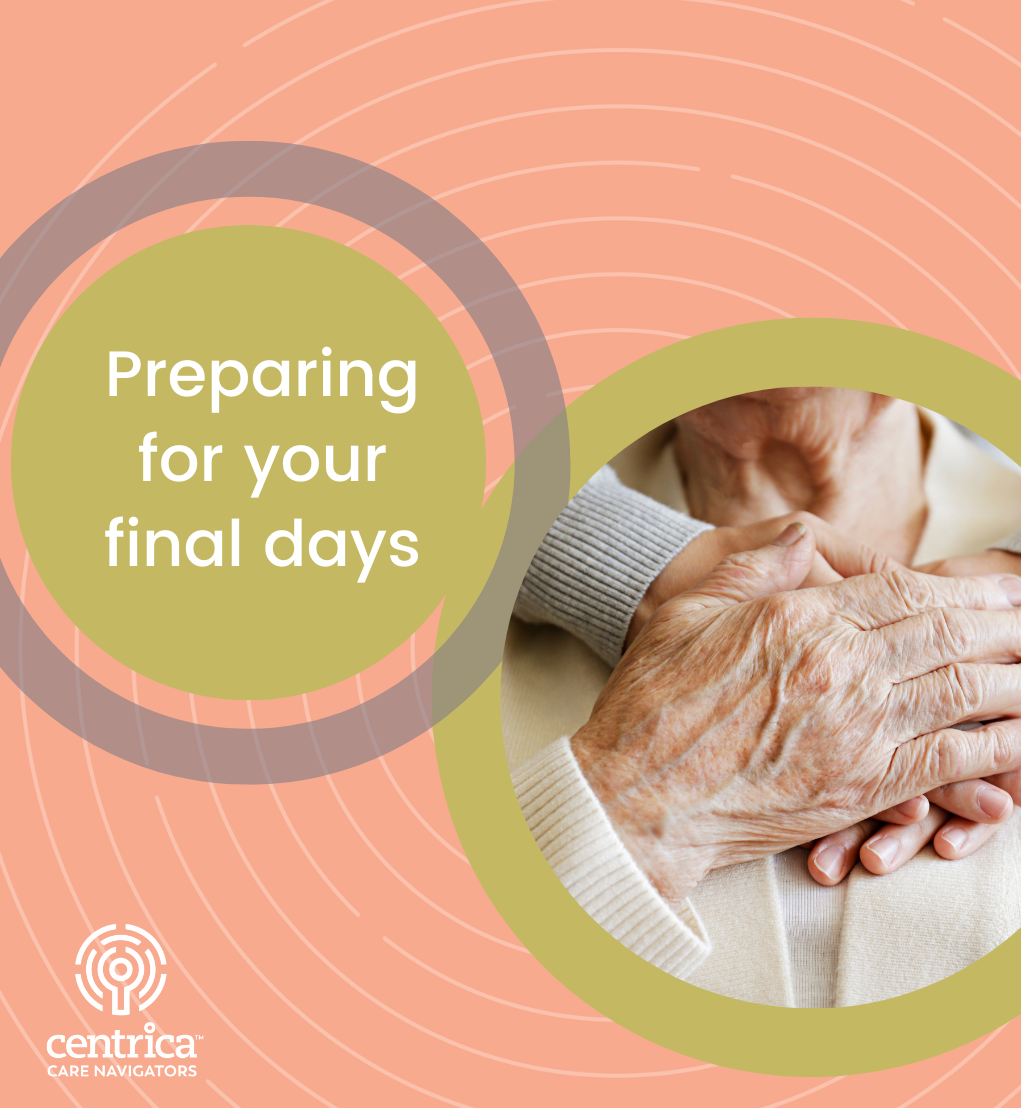Being ready for your final days, the time leading up to your death, can mean a lot of things: knowing the phone number to Centrica Care Navigators to contact your care team, preparing funeral arrangements ahead of time, and having advance directives written out and easy to find, among other tasks.
It’s a lot to think about, especially in a time when you may be struggling with having a life-limiting illness. But if your loved ones don’t know what you want to happen when you die, they may make decisions that go against your wishes.
“Some people have a plan but they’ve never communicated it; there are folks who don’t have an end-of-life plan — even when they are in hospice,” says Centrica Care Navigators Nurse Practitioner Val Savina. She has been working with patients and their loved ones for years, and says it’s essential to have a plan in place before it’s needed.
It’s still important to be clear about what you want to happen after your death, of course, but if you have instructions written out and you’ve made sure everyone close to you understands your wishes, and they can be honored at the end of life.
Starting the conversation
How do you start that conversation? One option is to turn to an expert. While hospice has its clinical side, with nurses monitoring vitals and doctors making diagnoses, there’s a social aspect to what all of our care team members do, too. We can talk with you and your loved ones about how they’re feeling, and give suggestions on the best next steps to take.
One way you can get people talking might not be apparent at first: paying the bills. You don’t have to worry about paying for care at Centrica Care Navigators, but electricity and water for your house still need to be paid, along with all the other day-to-day expenses.
If you have a catastrophic medical event, you may not be able to write checks or approve payments — it’s something that needs to be part of a care plan.
“Having a financial representative identified for you helps you have access to your bank and other financial accounts,” says Savina. “Putting this in place while you are of sound mind and body ensures access to all your information.”
Make sure you ask questions like:
- How will your bills get paid?
- What do you want your spouse, children, and extended family to know about your wishes prior to death?
- Do you want to be resuscitated — and do you know what that entails?
Advance directives
Advance directives highlight what should happen to a patient if they can no longer express their wishes (for example, if they are in a coma) — who will represent the patient on legal and financial matters, what should happen to their body after death, and so on.
It can also help prevent other kinds of stress, like having to deal with the probate court system when there isn’t a clear understanding of what the person wanted to happen to their money and possessions. Choosing a personal representative, sometimes called power of attorney, is a first step.
“It is helpful to have a medical power of attorney and a financial power of attorney,” Savina says. “They can be the same person but they are two different jobs. Having a power of attorney in place ensures that your wishes are honored, as they are able to act on your behalf.”
We offer a guide for putting your advance directives together, and additional topics to consider, like spirituality, organ donation, and mental health treatment.
Having a plan in place before there is a need for end-of-life care can help you and your loved ones feel less stressed and uncomfortable about death. But the first step is just starting the conversation.
You can learn more by exploring our website or calling Centrica Care Navigators at 269.345.0273.




